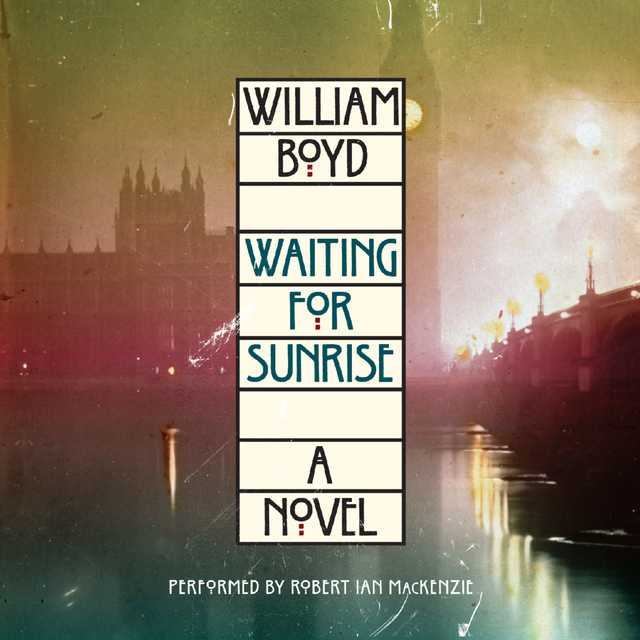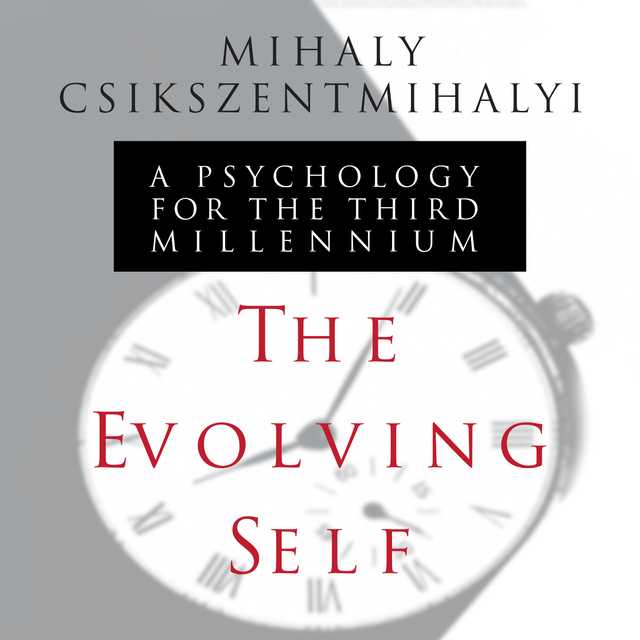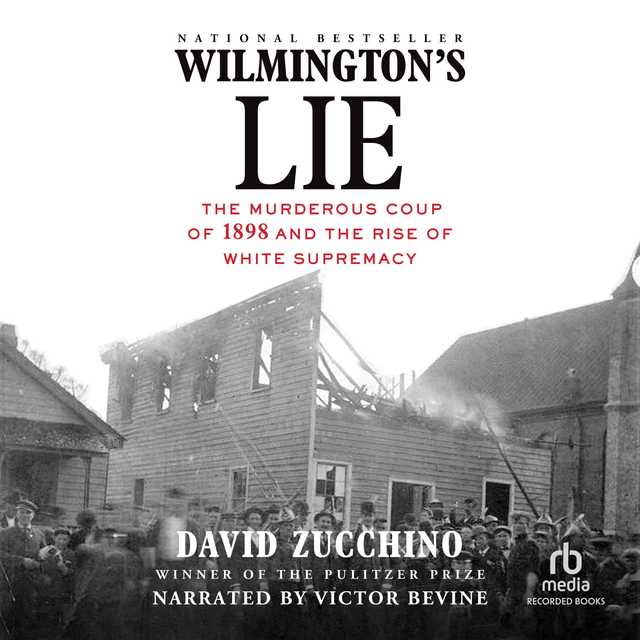Waiting for Sunrise Audiobook Summary
Vienna, 1913. Lysander Rief, a young English actor in town seeking psychotherapy for a troubling ailment of a sexual nature, becomes caught up in a feverish affair with a beautiful, enigmatic woman. When she goes to the police to press charges of rape, however, he is stunned, and his few months of passion come to an abrupt end. Only a carefully plotted escape–with the help of two mysterious British diplomats–saves him from trial.
But the frenzied getaway sets off a chain of events that steadily dismantles Lysander’s life as he knows it. He returns to a London on the cusp of war, hoping to win back his onetime fiancee and banish from memory his traumatic ordeals abroad, but Vienna haunts him at every turn. The men who helped coordinate his escape recruit him to carry out the brutal murder of a complete stranger. His lover from Vienna shows up nonchalantly at a party, ready to resume their liaison. Unable to live an ordinary existence, he is plunged into the dangerous theater of wartime intelligence–a world of sex, scandal, and spies, where lines of truth and deception blur with every waking day. Lysander must now discover the key to a secret code that is threatening Britain’s safety, and use all his skills to keep this murky world of suspicion and betrayal from invading every corner of his life.
Moving from Vienna to London’s West End, from the battlefields of France to hotel rooms in Geneva, Waiting for Sunrise is a mesmerizing journey into the human psyche, a beautifully observed portrait of wartime Europe, a plot-twisting thriller, and a literary tour de force.
Other Top Audiobooks
Waiting for Sunrise Audiobook Narrator
Robert Ian MacKenzie is the narrator of Waiting for Sunrise audiobook that was written by William Boyd
About the Author(s) of Waiting for Sunrise
William Boyd is the author of Waiting for Sunrise
More From the Same
- Author : William Boyd
- Ordinary Thunderstorms
- Sweet Caress
- Any Human Heart
- Restless
- Solo
- Publisher : HarperAudio
- Abraham
- American Gods [TV Tie-In]
- Dead Ringer
- House of Sand and Fog
- Prey
Waiting for Sunrise Full Details
| Narrator | Robert Ian MacKenzie |
| Length | 13 hours 8 minutes |
| Author | William Boyd |
| Publisher | HarperAudio |
| Release date | April 17, 2012 |
| ISBN | 9780062125651 |
Additional info
The publisher of the Waiting for Sunrise is HarperAudio. The imprint is HarperAudio. It is supplied by HarperAudio. The ISBN-13 is 9780062125651.
Global Availability
This book is only available in the United States.
Goodreads Reviews
Vit
August 21, 2018
Many things had happened on the eve of the First World War: both crucial and mysterious…It is a clear and dazzling summer’s day in Vienna. You are standing in a skewed pentangle of lemony sunshine at the sharp corner of Augustiner Strasse and Augustinerbastei, across from the opera house, indolently watching the world pass by you, waiting for someone or something to catch and hold your attention, to generate a tremor of interest. There’s a curious frisson in the city’s atmosphere today, almost spring-like, though spring is long gone, but you recognize that slight vernal restlessness in the people going by, that stirring of potential in the air, that possibility of audacity – though what audacities they might be, here in Vienna, who can say? Still, your eyes are open, you are unusually poised, ready for anything – any crumb, any flung coin – that the world might casually toss your way.Not the world, William Boyd tosses our way some sort of period mystery.Waiting for Sunrise is easy to read and it is probably the main merit of the novel… The book is quite entertaining and the story is smoothly meandering its way between psychoanalyzing and spying.Sex, scandals, secrets: isn’t it history?
Jill
August 17, 2016
It is no accident that William Boyd names his key character “Lysander” – the name of the iconic lover of Shakespeare’s A Midsummer Night’s Dream, and the victim of misapplied magic.Lysander Rief is a British actor of some renown on the world stage of life, as the rumblings of World War I become more and more pronounced. We meet him in Vienna where he is “taking the talking cure” with a disciple of Sigmund Freud’s as a result of a personal problem. While in his psychotherapist’s antechamber, he meets up with two others who will ultimately have a profound effect on his life. He falls under a magical love spell of sorts with the woman, Hettie (think: Hermia from the Shakespeare play). And, as Shakespeare’s own Lysander famously said, “The course of true love never did run smooth.”As in the play, Lysander will be forced to literally and figuratively enter a forest, a place of confusion, passion, heartache. And he will ultimately realize that “We’re all acting, aren’t we? Almost all the time—each and every one of us.”All of this is ensconced within a gripping espionage story as Rief, back in London during war time, is thrust into the world of underground intelligence, where his superiors are eager to use him to flesh out a traitor who is undermining the war efforts. Rief will be forced to rely on his improvisational acting skills to reveal that traitor’s identity. He will not know whom to trust and who will betray him. Gradually, he begins to inhabit a world “where it’s hard to make things out clearly, hard to tell exactly what is what and who is whom.” If all this sounds intriguing – it is. I am not typically a fan of the espionage story, but this one had me compulsively turning pages. The characterizations are well fleshed-out, the sense of place is finely-drawn, and the depiction of what is real and what can be trusted is palpable. From the antechambers of Vienna to the battlegrounds of London to the elusive streets of Geneva, this book captured my attention and kept me reading on as more and more is revealed. It is the first book I’ve read by William Boyd and it will not be the last.
Nancy
June 12, 2012
I loved it. Absolutely. Lysander Rief arrives in Vienna in 1913 to receive psychological help for a sexual problem. His closest friend in England had convinced him to try psychoanalysis; taking his advice, Lysander took out all of his savings and moved to Austria. At his first session with Dr. Bensimon, he is advised to keep a journal, which Lysander calls his "Autobiographical Investigations," which Bensimon says will hopefully yield a direct insight into Lysander's unconscious mind during the course of his treatment. Lysander's first entry details the event at age 14 that led simultaneously to his burden of guilt and his sexual issue. Bensimon believes the answer is to be found in his theory of "parallelism," scoffed at by Freud, which is "basically about using your imagination." The idea is this: "If the everyday world, everyday reality, is a fiction we create then the same can be said of our past -- the past is an aggregate of fictive realities we have already experienced -- our memories." Bensimon's job, as he sees it, is to try to change "those old fictions" Lysander's been living with. The doctor's brief use of hypnotic therapy plants an altogether-different version of that traumatic day in a "parallel world" within Lysander's subconscious that Lysander can develop in place of the real one. This technique aligns with Lysander's profession as an actor, where he is both himself and not himself, where he is always performing, and where it's "just an act, after all..., his métier, his talent, his calling." But as Lysander is about to discover, he's not the only one who is an actor. And so begins this tale of deceptions, of shifting identities in a world of duplicity and performance in some fashion or another. It's a book where efforts to discern what is real and not real and who to trust follow on the heels of the fictions created by Boyd's characters, and really, what better venue can there be for such ideas than a spy story? The story moves from Lysander's psychological treatment to his infatuation with another one of Bensimon's patients, Hettie. She is a sculptor, living a rather bohemian life with her artist-significant other Udo. Hettie and Lysander enjoy a torrid affair, but out of nowhere, Hettie accuses him of rape; he is placed under arrest and "escapes" with help from fellow countrymen at the British Embassy, leaving him in a lot of debt. Leaving Vienna and returning to England, he joins the army as World War I erupts, but his days in Vienna come back to haunt him when he is called upon to perform some secret-agent type work that will take him across enemy lines into Switzerland. Once home in England again, he must penetrate the closed-ranks bureaucracy within the military war machine to root out who is leaking secrets to the enemy, but some bizarre and unforeseen complications arise along the way. Lysander notes in his journal at one point that his " life seems to be running on a track I have nothing to do with,” -- he feels like a "passenger on a train" with no idea of where he's going and the route he's taking. He makes several references to waiting for sunrise, when "he might know what to do next," or when he has hopes that its arrival will bring understanding and clarity or "at least clearer vision," but the actor who once loved the limelight learns that it may be safer to remain in the world of shadows. Obviously there's much more to talking about this book than space will allow. I liked this novel immensely. This book has so many positives, including Boyd's awesome portrayal of a world in flux, a world that was "spinning, faster than ever ...," with time "on the move in this modern world" where the old was "going fast, disappearing and something different, something new, was inevitably taking its place." In 1913 Vienna Boyd's sense of place and time captures the atmosphere of this city on the cusp of an uneasy modernity, and reflect the same in wartime England and on the battlefields of France. There's a fair amount of wry humor that runs throughout, and the character of Lysander's gay uncle and his African lover brought out the occasional chuckle. On the down side, readers might be put off by the sometimes-meandering action or the pointless sidelines, for example, with Lysander's off-again, on-again relationship with his girlfriend Blanche. And if you're looking for a straight-up, full-on novel of high espionage, this really isn't it -- this is much more of a character-driven story than a tale of adventure.So maybe this isn't the best book William Boyd's ever written, but it's still damn good, and it will capture your imagination for a few hours as you're transported back in time. I don't think you can ask for much more than that.
switterbug (Betsey)
February 07, 2012
Young, blandly handsome British stage actor Lysander Rief lives in the shadow of his renowned, deceased father, a charismatic, talented actor that died in his prime. Lysander travels to Vienna in 1913 to undergo psychoanalysis, which is becoming the rage now that Freud has pioneered the "talking cure." While there, he engages in a sordid love affair with a seductive, gamine sculptor. The consequences propel him toward the most intrepid performance of his life--a persona game of guile and espionage, a dangerous role that he must inhabit and "perform" for the British government.Telling too much about the plot risks spoiling the reader's discovery. The story is largely interpretive, and the inferences are shaped by an individual's own experiences, knowledge and beliefs regarding psychology, mythology, art, and the different states of consciousness. What is readily apparent, and what is under the surface, like the Danube's ever-flowing water, teases the reader long after the last page is read. The cover of the book before me shows a photograph of Vienna, the photo being a representation of reality. What is real, and what may be projection, imagination, manipulation, creation, or representation, is left for the reader to discern.The story unfolds during the transformation of an era, as WW I looms on the horizon. Late modernity is taking root, "flickers," or film advances as a medium for actors, art is moving toward Expressionism, and Freud and Jung have split over their views of sex and the unconscious. This is a perfect book for structure fans, for its form is a frame for all that transpires. Boyd seamlessly braids, through alternating points of view and short, terse chapters, what is known and what is obscured. Often, what is hidden reveals what is present, and what is present exposes what is veiled. Moreover, he peppers the pages with a constant play of light on things concrete, like buildings and objects, and things abstract, like dreams and ideas.At first sight, the narrative moves linearly at a clipped pace, almost blithely, artlessly straightforward. Like a kaleidoscope, however, the perspective turns a fraction with each short chapter and with the three points of view Boyd incorporates throughout. The reader may eventually perceive that it is more opaque than clear, more dissembling than disclosing, and yet, it ultimately coalesces and connects, like night and day, wakefulness and sleep, dreams and reality, truth and lies, identity and deception, betrayal and faithfulness, shadows and light.Boyd's genius is that the story succeeds and commands on any of its contingent trajectories. Any inferred fissures, breaches, and cracks, no matter which way you spin the narrative wheel, intersect with the threshold regions where this book resides. The novel inhabits liminal spaces and periods, taking place in the interstitial zones of time and place, between the conscious and unconscious; knowing and unknowing; twilight and dawn."The more we know the less we know," says Lysander. That applies, also, to the relationship between the reader and the narrative. The story is full of paradoxes, ambiguities, coded keys, and psychosexual connotations. As you navigate through the pages, you may sometimes wonder which way the compass is pointing."My life seems to be running on a track I have nothing to do with--I'm a passenger on a train but I have no idea of the route it's taking or its final destination."Whether you are a poet, a dreamer, an actor, a soldier, or neither, a lot happens while you are wending your way through this darkly wry novel, waiting for sunrise.
Brian
March 23, 2013
Like Boyd's other recent and highly successful novels, Waiting For Sunrise is the story of a relatively ordinary individual caught up in extraordinary events. Opening in Vienna in nineteen fifteen, it begins with Lysander Rief, a not overly-successful English actor, sitting in the consulting room of Dr Bensimon, a psycho-analyst, to whom he has come for help with sexual problems that originate in a childhood burdened with confusion and deception.A chance acquaintance with Hetty, a young Englishwoman, in the psycho-analyst's waiting room, precipitates a passionate affair that will profoundly alter the course of Lysander's life. In his childhood, as he confesses to Dr Bensimon, he was the cause of an innocent young man losing his livelihood and being falsely accused of sexually molesting him. So there's a certain justice when some months later he himself is falsely accused of sexual assault by Hetty, and is obliged to flee Vienna in disguise.His escape is facilitated by Monroe, a military attaché at the British embassy. Later, when Boyd has returned to London and believes he has put the incident behind him, Monroe resurfaces, requiring a service from Boyd in repayment of his debt. The First World War is now in full swing and someone is revealing details of the British Army's plans to the enemy. Monroe wants Lysander to unmask a traitor in the highest echelons of the British ArmyLike all good spy stories Waiting For Sunrise presents the reader with a a hall of mirrors. The psycho-analyst's strategy for curing Lysander is the construction of an imaginary parallel world in which he must learn to believe in a different past. A similar process is now required by Lysander's new career in espionage with its assumed identities and false trails. In addition, there's also a complex web of literary allusions that adds yet another teasing layer of meaning and commentary.It's an highly entertaining story with some wonderful description, both of character and setting. But, for me, it's a little bit too much of a game. It's extremely well-researched and well-constructed but it didn't move me in any way, or leave me feeling that I've witnessed anything other than a formidable display of craftsmanship. From many other authors that would be enough. I just think that Boyd is capable of a great deal more.
Sean
May 17, 2012
This spy novel was a pleasant surprise. Waiting for Sunrise takes place at the opening of WWI between 1913 and 1915 in Vienna, Geneva, and London. It follows a young British actor named Lysander Rief who is wrongly accused of rape in his travels to Vienna to seek treatments for a sexual dysfunction. As a result, he flees the country and returns home and enlists in the war effort. He is recruited as a spy to locate a mole in the British war office and is caught up in an exciting counter-espionage plot. The real treat of this novel is William Boyd’s writing. This author has a gift for storytelling. His prose is elegant and enthralling. Highly recommended.
Bandit
November 12, 2015
Just wanted to make sure Sweet Caress wasn't a one off and gladly it wasn't. Boyd is in fact a good writer. Alas spy novels aren't particularly my thing, so when, closer to the halfway point, the story veered in that direction, it didn't particularly engage as much as a regular historical novel would, but it was still a very enjoyable read. Strongly reminiscent of C.J. Sansom's Winter in Madrid. An unwitting man (theatre actor of all things) gets drawn into political and military intrigue, in this case during WWI. Action, suspense, femmes (fatale and otherwise), contrivances and machinations...it's easy to see how Boyd went on to write a Bond adventure. With this author, it seems I definitely prefer his writing style, the narrative itself to characters and, on occasion, even plot itself, though I very much like the historical aspects and perspectives. It read quickly and was plenty entertaining, though spy genre for me remains more of a cinematic sort of experience. Good fun.
Rob
January 19, 2023
A wonderful storyteller. He has the ability to transform you to a time in history where often a major event is happening or about to take place. In this instance it is Vienna 1913 and Lysander Rief, an out of work actor is visiting an eminent psychiatrist when the beautiful elfin Hettie Bull walks in. A passionate, and ultimately doomed affair commences that will have long reaching consequences. Meanwhile 1 year later in London Riel is employed by wartime intelligence service to identify the person at the heart of government who is supplying valuable confidential wartime information to the enemy. As always I was swept along with Boyd’s descriptive prose and his very precise sympathetic nod to the events of that time. His books not only entertain but also educate. I was not aware of Turner Cars, founded in Wolverhampton in 1902, who manufactured one of the earliest 2 seater open tourer sports cars simply named the Turner 2 seater. This was the plaything of Lysander’s uncle Hamo, a colourful character, who enjoys a pivotal role in this superb novel. Highly recommended.
Trish
May 11, 2012
Lysander Reif, actor and hapless lover, is given brief speaking parts in Waiting… through the prop of a diary prepared for his Viennese psychoanalyst. Otherwise we watch in wonder (a laugh behind our smile) as this young British pawn in pre-WWI Vienna is turned this way and that in canny and knowing hands and is subjected to the voracious appetites of more mature personalities. Lysander, like the Shakespearean character of that name in A Midsummer’s Night’s Dream, experiences a magical twist in his affections from the tall, fair, svelte Blanche to the dark-haired and gamine Hettie while at the same time being “run” by British Intelligence. Never boring and never entirely serious, Boyd’s novel allows us to enjoy romping good theatre: he portrays agonizingly real motivations and maneuvers which leave our hero momentarily on the defensive. But Lysander is nothing if not imaginative and resourceful, and he finds ways to sort through the complicated set of constraints he is handed, while at the same time mentally discarding or recategorizing the bits he doesn’t choose to remember.Boyd’s writing is magic, for it is big fiction—big and complicated enough for one to want to get lost in for days. It is wry and funny and true enough. It is always a pleasure to have a new novel of his to look forward to—one never knows where he will lead. Certainly I never expected sexual dysfunction and the psychoanalyst’s couch, but that added to our attraction to the immensely-likeable Lysander, young innocent that he was, and wily interpreter of truth that he turned out to be.I freely admit, however, that I am still not exactly sure if I "got" the the final pieces of the book. I have a feeling I might have misinterpreted the final sleight of hand by our fine, and by this time, thoroughly grown-up Lysander. Boyd could have wiped the smile off our lips by hurting our main man, but he chose not to, and I thank him for that. But Lysander had borne the "slings and arrows of outrageous fortune" and was far wiser than just by half.
Cathal
October 16, 2020
I raced through this book. I do when I’m enjoying a great story. One thing William Boyd is good at is telling stories. Most of the stuff I’ve read by him feature philanderers. The main character here has been hard done by on a few different levels by women, government etc. It’s a great spy story. He becomes a spy by accident because he owes a debt to his country and ends up risking his life in the process. So many twists and turns in this story to keep you amused.
Helena
December 07, 2012
The only negative about this new William Boyd book is that it takes no time at all to read and then you have another two years or so to wait for another one.Waiting for Sunrise, which took me about a week to consume, is vintage Boyd and doesn't disappoint. It's a thrilling spy thriller with a human story, which starts in Vienna before the outbreak of the First World War in late 1913, and ends in London about two years later.The main protagonist is a handsome actor, Lysander Rief, who decides to go to Vienna to seek a cure for a complaint which is preventing him from marrying his actress fiance, Blanche. But as the weeks turn into months, the young Englishman gets entangled in much more than The River of Sex, which one of his newly found friends at the guest house tells him runs below the surface of the respectable Viennese society; or parallelism, the cure his doctor has prescribed to Lysander.Having escaped back to London, in 1914 as war breaks out Lysander, in a moment of madness, enlists and briefly becomes a private in the army. He serves at an interment camp near Swansea, where the army makes use of his German language skills. But he's soon transferred to another department for some more interesting duties, a dangerous commission he is unable to refuse.With his new duties, Lysander Rief's life becomes increasingly unpredictable and dangerous. He feels like a puppet controlled by strings, held by unknown people. He's sent to Geneva on a mission, and barely surviving it, begins to mistrust everyone around him.As the story weaves between Vienna, Geneva and London, the reader, just as Lysander, is unsure who's speaking the truth and who's lying. Who is sincere and who is acting. 'We all act all the time', Blanche says at one point.In spite of its impeccable credentials as a fast moving, well plotted spy thriller, Boyd's latest novel is also a study into the human condition. (He just can't help himself) At the very beginning of the book Lysander consults a psychiatrist; as a result throughout the book he reflects on his own emotions through a diary he has titled, 'Autobiographical Investigations'. This is a very fine tool for a writer - as well as telling the story from a third person point of view, Boyd is also able to let his reader into the innermost thoughts of the protagonist, without it seeming forced. The diary also makes the frequent sex scenes more realistic than a third person narrative would have done. Brilliant.Another of William Boyd's many talents as a writer lies in his ability to immerse the reader into the world he has created so completely, that the world outside - the real world the readers resides in - doesn't seem to matter. He takes you into a turn-of-the-century cesspit of espionage. He places his protagonist in unreal, wonderful situations with - say - a femme fatale, or a passionate madwoman. He eggs the reader on, not letting you rest until the story is finished.Boyd's characters in Waiting for Sunrise are so skilfully drawn, that you feel as if you've lost a couple of friends, few enemies and several unpleasant acquaintances when the book comes to an end.Yes, I'm in mourning for the world in Waiting for Sunrise. Let's hope Boyd is working hard on a new story...
Ian
April 29, 2012
Waiting for Sunrise by William Boyd is a literary thriller, starting in pre-first World War Vienna and finishing in wartime London. In between it touches down in the battlefields of France and a more peaceful Geneva. The main protagonist is Lysander Rief, a young English actor beginning to make a name for himself on the stage, following in the footsteps of his more famous father. As the novel commences, Lysander has travelled to Geneva seeking psychotherapy for a sexual problem from one of Vienna’s leading psychotherapists. Lysander remains at the centre of events throughout the novel, becoming a wartime undercover agent on a mission to identify a traitor who is leaking important logistical information to the Germans. Several women play a key role in his story – Blanche, his actress fiancé as the book begins, is initially left back in London, while in Vienna he falls under the sway of Hettie Bull, a sculptress, who comes to dominate his life completely. As the book progresses Lysander begins to feel that he is being and has been manipulated from an early stage by those around him, even those closest to him, and becomes increasingly uncertain who, if anyone, he can trust. William Boyd is a successful and well-established author, probably best known for Any Human Heart, A Good Man in Africa, and An Ice-Cream War. He has won a number of literary awards and is undoubtedly a very accomplished writer. Waiting for Sunrise is an entertaining read, with a complex plot with plenty of twists and turns set in an interesting historical period which is portrayed in a convincing way. Apart from Lysander, there is a cast of convincing supporting characters, most of whom will have a significant role to play before events resolve. Even at the end of the book, there is a sense of uncertainly as to whether the whole truth has been revealed or resolved. To quote Lysander “The more we know, the less we know”. I enjoyed Waiting for Sunrise, without thinking it exceptional. It was a good read, but I don’t expect it to stick in my mind for very long. I liked the idea of “parallelism”, a psychological technique by which Lysander is helped to forget past traumatic events by imaging repeatedly and in detail a less traumatic alternative which gradually he comes to believe was real. There are various linkages to A Midsummer Night’s Dream – Lysander under a magical spell, a denoument in a forest etc. Most of the book is written in the third person, but some sections are written as autobiographical notes in the first person by Lysander, and for me the transition grated a little. Interestingly from a technique perspective, the book starts with second person sections addressed to the imaginary reader, which act as a frame for the contents. Overall, then, a good literary thriller, but for me not quite outstanding. I think it would translate well to cinema or television, a period thriller with plenty of sex and some violence.
Most Popular Audiobooks
Frequently asked questions
Listening to audiobooks not only easy, it is also very convenient. You can listen to audiobooks on almost every device. From your laptop to your smart phone or even a smart speaker like Apple HomePod or even Alexa. Here’s how you can get started listening to audiobooks.
- 1. Download your favorite audiobook app such as Speechify.
- 2. Sign up for an account.
- 3. Browse the library for the best audiobooks and select the first one for free
- 4. Download the audiobook file to your device
- 5. Open the Speechify audiobook app and select the audiobook you want to listen to.
- 6. Adjust the playback speed and other settings to your preference.
- 7. Press play and enjoy!
While you can listen to the bestsellers on almost any device, and preferences may vary, generally smart phones are offer the most convenience factor. You could be working out, grocery shopping, or even watching your dog in the dog park on a Saturday morning.
However, most audiobook apps work across multiple devices so you can pick up that riveting new Stephen King book you started at the dog park, back on your laptop when you get back home.
Speechify is one of the best apps for audiobooks. The pricing structure is the most competitive in the market and the app is easy to use. It features the best sellers and award winning authors. Listen to your favorite books or discover new ones and listen to real voice actors read to you. Getting started is easy, the first book is free.
Research showcasing the brain health benefits of reading on a regular basis is wide-ranging and undeniable. However, research comparing the benefits of reading vs listening is much more sparse. According to professor of psychology and author Dr. Kristen Willeumier, though, there is good reason to believe that the reading experience provided by audiobooks offers many of the same brain benefits as reading a physical book.
Audiobooks are recordings of books that are read aloud by a professional voice actor. The recordings are typically available for purchase and download in digital formats such as MP3, WMA, or AAC. They can also be streamed from online services like Speechify, Audible, AppleBooks, or Spotify.
You simply download the app onto your smart phone, create your account, and in Speechify, you can choose your first book, from our vast library of best-sellers and classics, to read for free.
Audiobooks, like real books can add up over time. Here’s where you can listen to audiobooks for free. Speechify let’s you read your first best seller for free. Apart from that, we have a vast selection of free audiobooks that you can enjoy. Get the same rich experience no matter if the book was free or not.
It depends. Yes, there are free audiobooks and paid audiobooks. Speechify offers a blend of both!
It varies. The easiest way depends on a few things. The app and service you use, which device, and platform. Speechify is the easiest way to listen to audiobooks. Downloading the app is quick. It is not a large app and does not eat up space on your iPhone or Android device.
Listening to audiobooks on your smart phone, with Speechify, is the easiest way to listen to audiobooks.






























